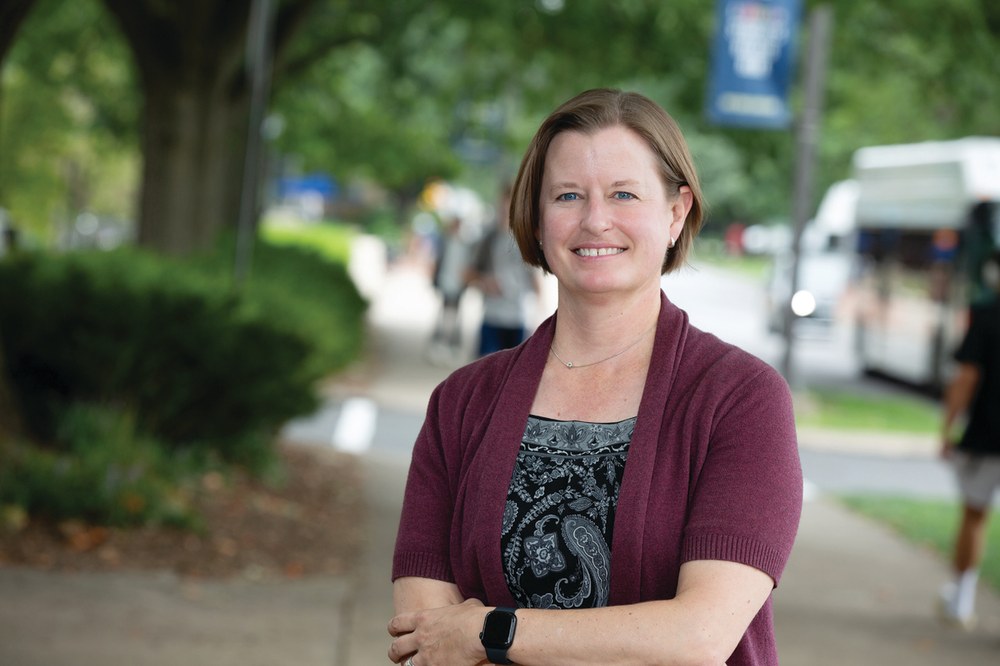Posted: November 30, 2023
The plant pathologist may be new to her role as assistant dean for graduate education, but she has deep roots in the college

Photo: Michael Houtz
Although my earliest years were outside Pennsylvania, most of my life has been spent in State College, Pennsylvania. We moved to State College in 1982 when my dad, Charles Krueger, was named the associate dean for research in what was then called Penn State's College of Agriculture. But more influential was his continual love of gardening; it inspired my preference for botany over zoology in high school, which led me on my career path.
Why did I choose to study at Penn State? Penn State's excellent reputation for agriculture and my love of plants led me to a bachelor's degree in horticulture at Penn State. After I took my first plant pathology course taught by Dr. Fred Gildow, I realized that being a plant doctor was a field of study. I pursued my master's and doctoral degrees in plant pathology, working with the extension tree-fruit pathologist Dr. Jim Travis. That experience further solidified my drive to work with growers to help them manage diseases on their crops.
Following graduation, I pursued postdoctoral studies working with Dr. George Abawi, a vegetable pathologist and nematologist at Cornell University. Although he did not have an extension appointment, his research program was heavily embedded in solving real-world problems and conducting on-farm research. These experiences further sent me toward a career as a vegetable extension pathologist, which landed me back at Penn State in 2008.
My passion for helping people naturally reaches beyond my extension stakeholders and has expanded to include graduate students and education. In 2016, I assumed the role of director of graduate studies for the college's plant pathology program, and I later served on the graduate council.
As assistant dean for graduate education, my goal is to develop and implement programs and opportunities that enhance graduate student success, promote research experience and guide professional development to support the tripartite mission of the college.
One of the most rewarding aspects of graduate education is seeing students gain the knowledge, skills and confidence necessary to succeed in their chosen career path, whether in academia, industry, government or a nonprofit. Graduate education is about training the next generation of researchers and problem-solvers who are knowledgeable in their field of study, critical thinkers, effective communicators and advocates for the importance of research and extension in solving global challenges, from food insecurity to climate change.
The most important thing I have learned is that people should accept each other's differences and recognize that diversity of background, experience and thought are necessary for solving challenges from a local to global scale and individual growth.
Beth Gugino also serves as associate director of the agricultural experiment station
Features
Predictably Unpredictable
Building resilient crops for a changing world
A Passion for Plants
Cultivating the future of plant science
A Force of Nature
Ag Sciences leads the new Center for Plant Excellence
Shaping the Future of Agriculture
New Dean's Leadership Council to help guide future in the College of Ag Sciences


